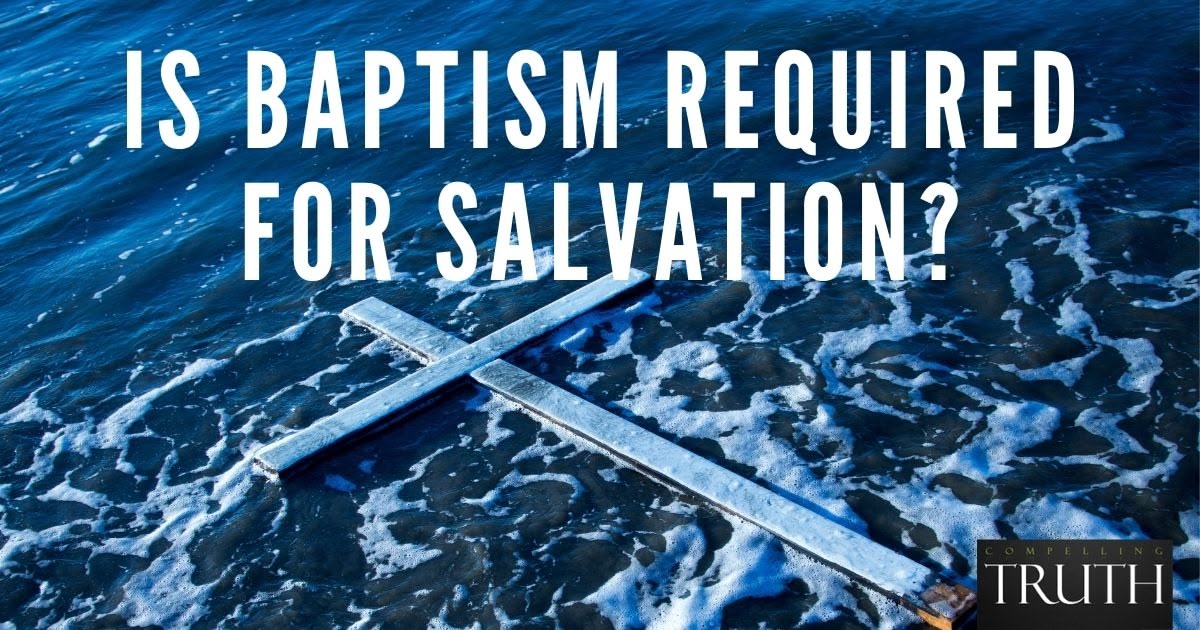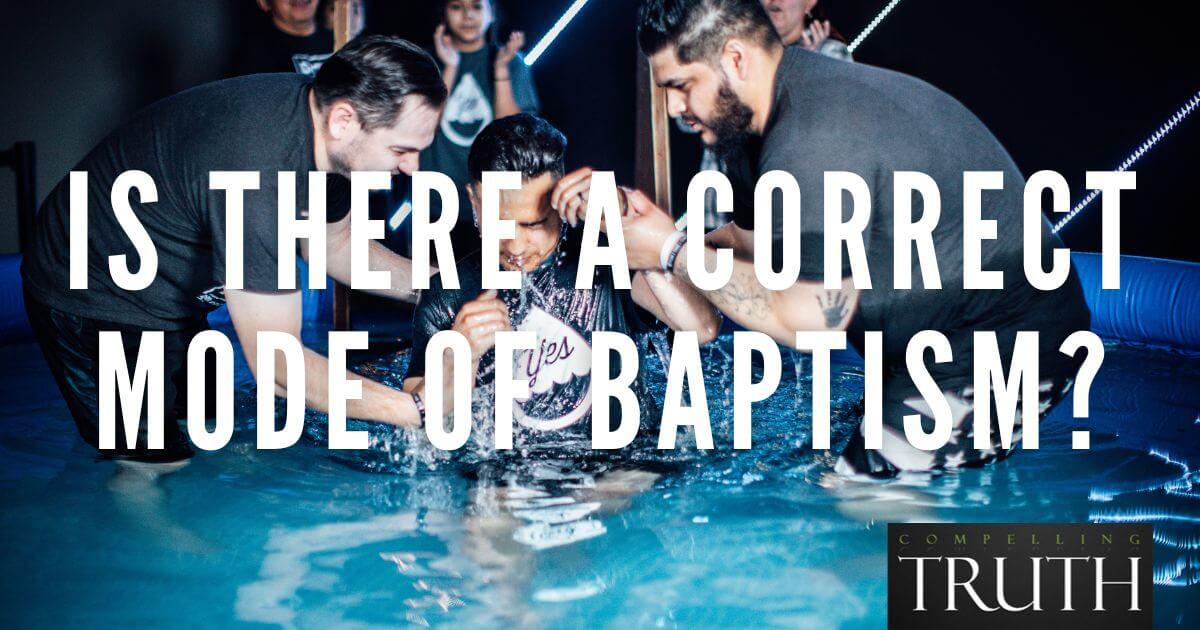Baptism is the New Testament's command for all believers in Jesus. He commanded that those who become disciples would be baptized (Matthew 28:19) and was even baptized Himself (Luke 3:21). But what if a person is unable to be baptized due to some kind of physical limitation? What should be done in these cases?
First, it is clear that baptism was historically done by immersion. John 3:23 teaches, "John also was baptizing at Aenon near Salim, because water was plentiful there." Matthew 3:5-6 notes, "Then Jerusalem and all Judea and all the region about the Jordan were going out to him, and they were baptized by him in the river Jordan, confessing their sins." Acts 8:36-38 also shows that the Ethiopian who wanted to be baptized stopped at a location where there was water, saying, "'See, here is water! What prevents me from being baptized?' And he commanded the chariot to stop, and they both went down into the water, Philip and the eunuch, and he baptized him."
Second, it is also clear that baptism is not a requirement for salvation, but is rather a public expression of a person's salvation. Ephesians 2:8-9 teaches, "For by grace you have been saved through faith. And this is not your own doing; it is the gift of God, not a result of works, so that no one may boast." The man who believed in Jesus while hanging on the cross had no opportunity to be baptized, yet Jesus told him, "Truly, I say to you, today you will be with me in Paradise" (Luke 23:43).
Third, Scripture provides no clear explanation regarding what to do in cases where a person is unable to be baptized by immersion. However, an early church writing call the Didache (written by the early second century at the latest) records the following interesting historical practice: "And concerning baptism, baptize this way: Having first said all these things, baptize into the name of the Father, and of the Son, and of the Holy Spirit, in living water. But if you have no living water, baptize into other water; and if you cannot do so in cold water, do so in warm. But if you have neither, pour out water three times upon the head into the name of Father and Son and Holy Spirit." It appears the early church accepted pouring for baptism in cases in which other water was unavailable.
In addition, baptism is designed for a person who believes in Jesus to declare their commitment to Jesus and to signify the death, burial, and resurrection of Jesus in their life. If a person is unable to be fully immersed in water due to physical restrictions, he or she can at least make a public declaration of faith in front of other believers to clearly express their commitment to Christ.
Again, the exact answer to baptism for those disabled, elderly, or otherwise unable to be baptized is not specifically addressed in Scripture. Pouring of water was clearly used in the early church as an alternative, and a public declaration of one's faith can be made regardless of whether baptism by immersion is possible.
First, it is clear that baptism was historically done by immersion. John 3:23 teaches, "John also was baptizing at Aenon near Salim, because water was plentiful there." Matthew 3:5-6 notes, "Then Jerusalem and all Judea and all the region about the Jordan were going out to him, and they were baptized by him in the river Jordan, confessing their sins." Acts 8:36-38 also shows that the Ethiopian who wanted to be baptized stopped at a location where there was water, saying, "'See, here is water! What prevents me from being baptized?' And he commanded the chariot to stop, and they both went down into the water, Philip and the eunuch, and he baptized him."
Second, it is also clear that baptism is not a requirement for salvation, but is rather a public expression of a person's salvation. Ephesians 2:8-9 teaches, "For by grace you have been saved through faith. And this is not your own doing; it is the gift of God, not a result of works, so that no one may boast." The man who believed in Jesus while hanging on the cross had no opportunity to be baptized, yet Jesus told him, "Truly, I say to you, today you will be with me in Paradise" (Luke 23:43).
Third, Scripture provides no clear explanation regarding what to do in cases where a person is unable to be baptized by immersion. However, an early church writing call the Didache (written by the early second century at the latest) records the following interesting historical practice: "And concerning baptism, baptize this way: Having first said all these things, baptize into the name of the Father, and of the Son, and of the Holy Spirit, in living water. But if you have no living water, baptize into other water; and if you cannot do so in cold water, do so in warm. But if you have neither, pour out water three times upon the head into the name of Father and Son and Holy Spirit." It appears the early church accepted pouring for baptism in cases in which other water was unavailable.
In addition, baptism is designed for a person who believes in Jesus to declare their commitment to Jesus and to signify the death, burial, and resurrection of Jesus in their life. If a person is unable to be fully immersed in water due to physical restrictions, he or she can at least make a public declaration of faith in front of other believers to clearly express their commitment to Christ.
Again, the exact answer to baptism for those disabled, elderly, or otherwise unable to be baptized is not specifically addressed in Scripture. Pouring of water was clearly used in the early church as an alternative, and a public declaration of one's faith can be made regardless of whether baptism by immersion is possible.



